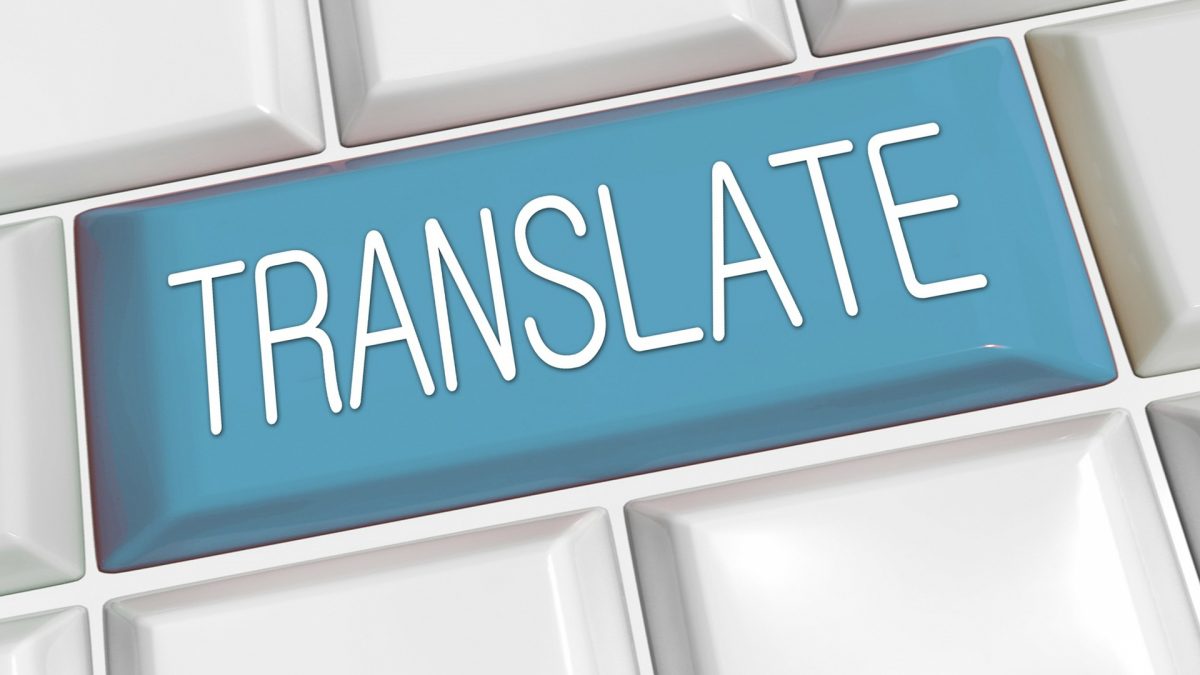
4 Features Of A Drug Injury Claim
February 6, 2022
Is It Worth Getting An Accident Lawyer?
February 9, 2022Reading and understanding the law is already difficult for those fluent in English. How much more for those struggling with language barriers?
Because of this, it leaves those already struggling with language barriers in a vulnerable position. Translators then have a crucial role in ensuring that legal professionals and the Limited English Proficiency (LEP) legal party can communicate and understand each other.
This article will discuss why translation services are more favored in court than translation technology and some examples of how translation could help LEP constituents in Texas and “Global Britain” in building new trade deals. If you want to learn more about this, keep on reading!
Language Comprehension in Equity and Law
When legally defining equity, it’s generally described as a ‘branch of law concerned with fairness and justice.’ This concept is the basis of many legal systems in place today, even though it seems abstract and vague. Equity is conscience, “The eyes of the law are human eyes,” based on the interpretation of the legal professionals.
So when it comes to the legal parties struggling with language barriers, there’s a possibility that they are denied the principle of equity due to their lack of language comprehension. In turn, it also means the lack of understanding of their legal rights and the legal system they currently follow.
In the UK alone, it’s estimated that there are 9.3 million immigrants, and about 11% of them are considered LEP. And it’s not only in the UK. Many parts of the world are experiencing an increasing number of immigrants in their country.
Despite this, many countries don’t have an official translation of their laws. This would have made the interpretation of the law more unified. For the time being, many legal practitioners rely on translation services for their legal documents.
But for many LEP immigrants, official translations of the law would benefit them. To give you an example, we present you with some local laws from Texas that could assist the local immigrant families in the area if they were translated.
Some Texas Laws That Took Effect Last Year
As of now, there have been no recorded official Texas translated laws released by the government that would be a legal reference for all immigrants and legal practitioners within the state. As mentioned, the courts rely on translation services to ensure all parties involved in court are on the same page in the proceedings.
We wrote below some of the bills that took effect last year that could improve the lives of its constituents if translated:
Improving the Educational System Of Emergent Bilingual Students In Public Schools
Senate Bill No. 2066 and Senate Bill No. 560 seek to change the term Limited English Proficient (LEP) and English Learner (EL) students to Emergent Bilingual students and provide them with a better educational system.
As of now, 20% of Texas public school students are emergent bilingual students. These bills will monitor their progress and development, like showing signs of dropping out, assessing their mental state, how to better teach in a multicultural learning environment, etc.
Why should we translate these bills?
Under this law, teachers must evaluate the mother tongue and English proficiency of their students’ household and home language.
From kindergarten to grade eight, the parents are to sign an assessment, which a committee would determine the child’s progress.
According to the Migration Policy Institute, about 53.8% of foreign-born immigrants are considered LEP. Immigrant families who struggle with language barriers would benefit from learning their obligations and responsibilities on their child’s educational progress.
The Role of Translation Services In Interpreting The Law
Even though the immigration process requires English proficiency from applicants, immigrants that have lived in the US for five years found that 47% of the participants weren’t fluent in English. This explains the increasing demand for translation services in the US legal industry.
While in the UK, the Association of Translation Companies (ATC) has reported that 23.3% of the UK’s translation industry revenue comes from legal firms and the finance and marketing sectors in 2019. While in 2021, they reported that the top service provided by language service companies was translation services.
To get more insights on this matter, we interviewed Ofer Tirosh, the CEO of Tomedes, a translation services company specializing in translating various legal documents for the EU and UK market.
“Even though the UK already left the EU, it has not stopped trade deals with the rest of the world. Businesses and exporters are taking advantage of this and are exploring new markets. So it’s no surprise that the demand for language and translation services have increased in the field of law,” Tirosh explained.
He continues, “Trade involves not only the exchange of goods but also the exchange of labor. Translation holds a crucial role in overcoming the language barriers in these trades. For example, UK businesses that want to expand into foreign markets will need translation to comply with the local laws. The same goes for any foreign business wanting to do transactions in the UK.”
The translation of legal documents starts with the translator’s interpretation of the local law and its legal system. Mistranslation of legal documents can lead to legal professionals misinterpreting the local law and legal system, leading to significant damages.
Is Translation Technology Enough in Court?
Due to technological advances, some businesses and legal firms use translation technology to translate their legal documents more efficiently and to cut costs by hiring professional translation services. But in a study by Madison Elizabeth Wahler, JD from Stetson University, she stated that since lawyers are not linguists, there have been instances of malpractice due to errors in the translation.
As mentioned, the mistranslation leads to the misinterpretation of the law. There are various reasons why translation technology cannot translate legal documents accurately:
- Lack of Cultural and Legal Nuances – When it comes to the law and legal procedures, it all depends on the country or region’s cultural practices and society’s concept of equity and justice. The current translation technology lacks understanding of these nuances, which can affect the quality of the translation.
- Lack of Experience Dealing with Certain Language Pairs – Because it’s a machine, it will heavily rely on its experience from the previous translation process. If it encounters a language pair, like Polish-English, and has no prior experience with it, there’s a higher probability of errors in the translation.
- Lack of Professional Standards – Translators must follow the requirements of organizations that impose standardization in their translations. Translation technology is not standardized. Due to this, we can’t guarantee the quality of the translation.
In the US, there have been several instances wherein judges have ruled that LEPs can’t legally consent with the use of Google Translate due to the reasons mentioned above. Wahler explained that “[a]lthough incorrect translations frequently bring about devastating consequences, no translator has ever been successfully sued for producing an incorrect translation.”
Professional Translation Services Are More Favored in Court
For all the inaccuracies brought by translation technology, many translation services use them for translating legal documents. But unlike businesses and legal firms that solely rely on these technologies, the translation services use them to enhance their translation process.
Tirosh explained that from his experience working on several legal-based projects with Tomedes, there are many factors that one has to consider depending on the location. Going back to our example with Texas’ new education bills for emergent bilinguals, he commented that Texas has a significant number of speakers from low-resource language groups. And due to the domain complexity of the field, it is difficult to find a one size fits all MT solution if there ever is one.
Another reason why many courts favor professional translation services over translation technology is because of the considerable number of years of study and practical experience a legal translator undergoes before they can get accredited.
“Some Latin American countries, like Argentina, actually require Spanish legal translators to attend law school to study both the Common Law and Civil Law. Their universities also offer Masters degrees in Legal Translation. Due to this, courts from these countries will only accept translated documents from translators that have studied and are certified by these institutions,” Tirosh explained. “Not all countries have this system in place, and so, it depends on the local and international institutions to provide standardized ways of translating legal documents. ”
Final Thoughts
Language barriers are problematic for any LEP individual seeking to exercise their rights under the law where they live. Because of this, translation is essential in ensuring that all parties and legal practitioners can effectively understand each other and the law.
And although technology has come a long way, accredited translation services are given more credence in court due to the legal expertise of translators and the good faith placed on them to provide the most accurate representation of the original legal document.





